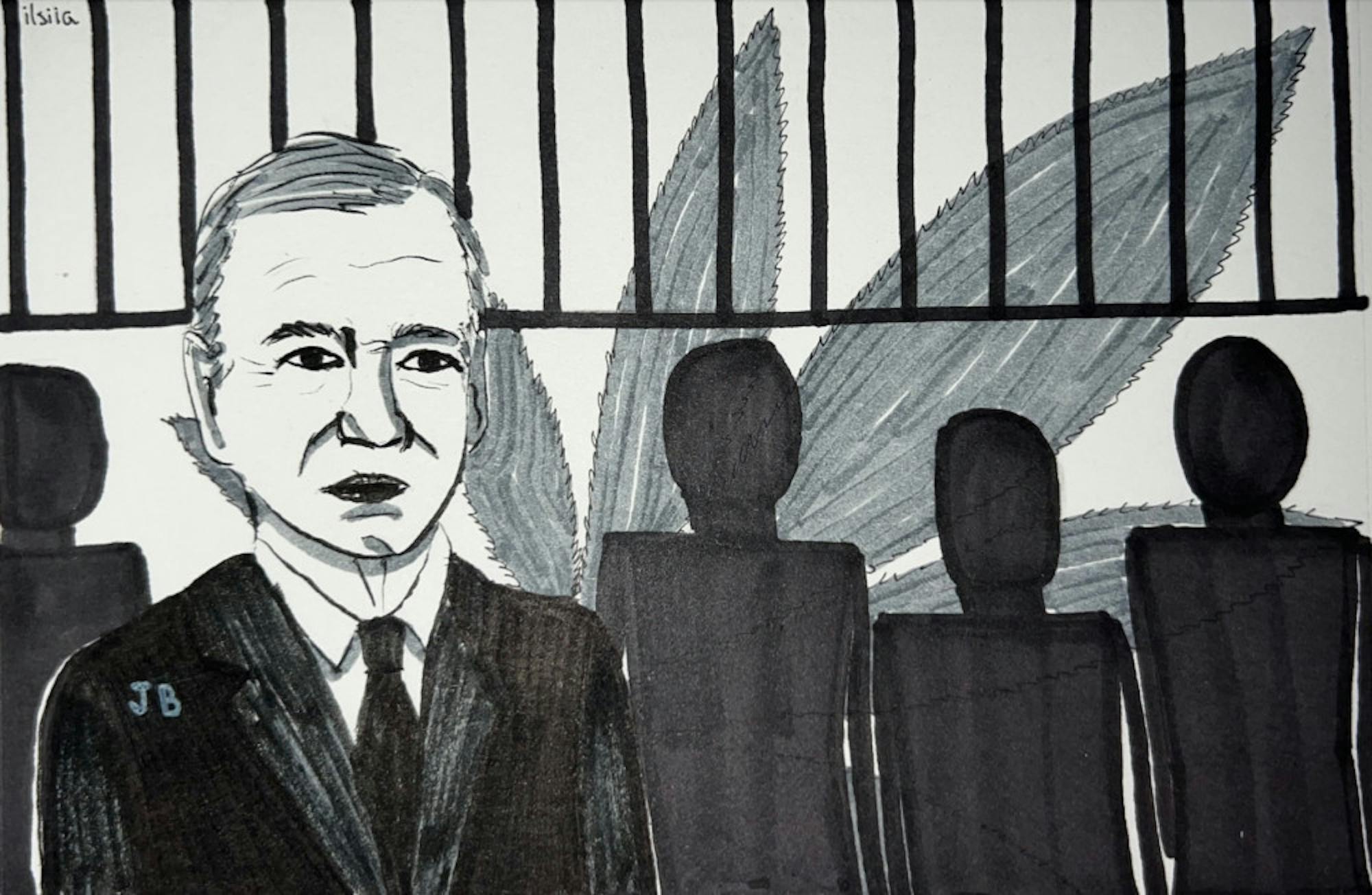Last week, president Joe Biden announced a pardon for all those with federal charges for simple possession of marijuana, calling on governors to do the same at the state level and announcing that current classification of marijuana would be reviewed. The move is restorative, just, and a first step toward reform. Biden acted completely within his domain and made a reasonable adjustment to the national policy on marijuana that focuses on helping people, specifically people of color, rather than just focusing on legalization.
Biden’s move has been met with intense criticism from the right. Some have called the move an overreach, and other Republicans like Senator Tom Cotton have labeled the pardon a performative attempt to “distract from failed leadership” ahead of the midterms. The coverage of the announcement by Fox News framed Biden’s policy as an attempt to rally Democratic voters for the midterms and further normalize marijuana. Biden’s stated goal, however, is to address the problem of unbalanced arrest rates for people of color for marijuana possession. The move is not an executive overreach, and governors of red and blue states alike should follow the president’s lead.
Criticism has also come from Biden’s own party. People have claimed that this blanket pardon is ineffective since no one will be released from prison. While it is true that no one is currently in federal prison solely for simple marijuana offenses, the pardon will still help thousands. Prior convictions can prevent people from getting jobs or getting into schools, and there are currently more than 6,500 people who will feel the effects of this pardon and have the burden of their convictions eased.
Public perception of weed has changed over the last few decades and public policy has finally caught up. Debates on the negative impact of marijuana on the brain and how the government should treat it persist, but the bottom line is that no one should be in jail for possession of small amounts of a drug that is already legal in many states. Furthermore, regardless of how one feels about the laws surrounding possession and use of marijuana, the problem that president Biden addressed has more to do with systemic racism than drugs.
As Biden said in his statement, “While white and Black and brown people use marijuana at similar rates, Black and brown people have been arrested, prosecuted and convicted at disproportionate rates.”Systemic racism in our country keeps people of color from advancing in society — pardons on minor charges that have disproportionately affected these groups is an effective way of beginning to undo the effects of oppression.
Looking closer at the pardon, we can see that there is still much work to be done. The pardon only applies to those federally charged with simple possession, meaning that thousands of others with state charges will not see the benefits of expungement. While this is frustrating, and justice is due for those still facing the consequences of state charges for simple possession of marijuana, this is how change is enacted in our country. Those calling Biden’s move an overreach and those on the other side saying that Biden has not done enough must understand that. Biden acted within his field of play and is now calling on the governors to do the same. The Biden administration must continue to put pressure on the states, and let others see the positive effects that will come from this change. We in the Tufts community can also help advance this change. We must use our voices to encourage our local and state governments. We cannot let those left out of this pardon be neglected.






